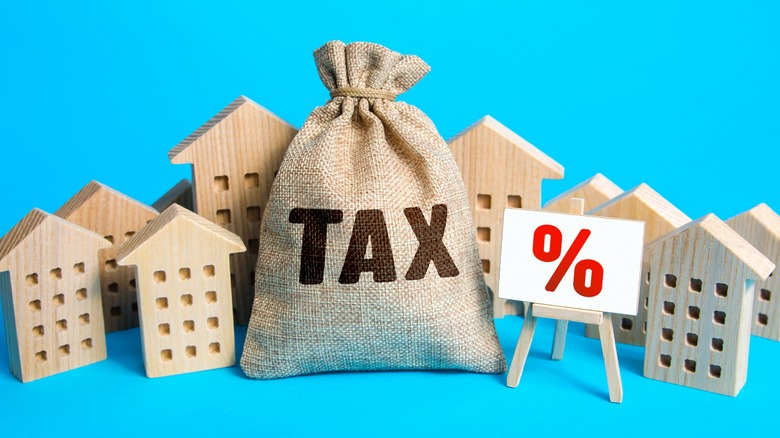Here's Every State Without An Income Tax
There are many reasons why people may consider moving across the country to another state. It could be that you have to relocate because of a new job opportunity, to be closer to family, or just because you need a change of scenery. Whatever it is that influences your move, one of the major positives that could draw you to a particular state is if that state doesn't have any personal income tax.
On the surface this may be very appealing to the tax-paying individual, as it can save you literally thousands of dollars a year, depending on your annual income. On average, citizens of the United States are taxed by the federal government anywhere between 3.5% to upward of 25.6%, depending on the percentile of income they land into. For example, if you're a U.S. taxpayer that falls in the bottom 50% — meaning that you earn an annual gross income of less than $44,269 — you could see 3.5% of that go toward your yearly income tax payment. Whereas the top 1% — or those who are earning over $546,434 in annual gross income — could pay 25.6% of that toward income tax.
Although these federal income taxes help to fund programs such as Social Security, national defense, Medicare, infrastructure, and schools, as well as helping to pay off the interest on the national debt, it's no wonder why some people may be enticed toward states that won't also charge you at the state level every tax season.
States without income tax find other ways to claim their pound of flesh
Out of the 50 states in the United States, there are nine that do not require you to pay annual state income tax. These are Alaska, Florida, Nevada, New Hampshire, South Dakota, Tennessee, Texas, Washington, and Wyoming, according to Forbes. Although moving to these states could result in a bit of extra savings when tax time comes rolling around, that doesn't mean that you are in the clear.
In order to compensate for not collecting income taxes at the state level, some of these states — Nevada for example — opt for a sales tax on certain items, such as antiques, clothing, and vehicles instead. The sales tax can range from 6.85% up to 8.375%, depending on where you live in the state, per the Nevada Department of Taxation. Also, as Forbes notes, despite having no income tax, Texas has a higher property tax than other states. This means that when you purchase your home, about 1.6% of that will go toward property taxes.
Of the nine states that don't levy a state income tax, New Hampshire and Alaska are the only two that don't require sales tax on goods and services as well, according to the Government of New Hampshire. However, like Texas, they do rely on property tax collections in order to offset this loss of earnings. Information gathered by the U.S Census Bureau ranked New Hampshire and Alaska as the top two states that are most dependent on property tax for their government's revenue.

